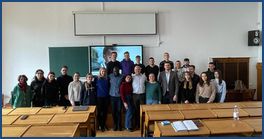
| Home | Leader & Speakers | Aims & Goals | Teaching | Events | Documentary | Breaking News |

In this context, the course European Security, National and Ethnic Minority Issues aims to provide students with a working knowledge of European security and the aspect of ethnic and national minorities.

Compulsory course for BA students from:
- Security Studies (teaching language Romanian and English)
- International relations and European studies (teaching language Romanian)
- History
The course is also optional for students from other majors from our Faculty, students who do not automatically meet security studies-minorities studies (in such fields as philology, public administration journalism, economics, advertising, business, math, letters, physics, biology, law, medicine and communication sciences). Foreign students (Erasmus+) are encouraged to take part in this course as well, as the course is also in English.
On the successful completion of this course students will be able to:
- understand the concepts of security, minority, migration, refugee;
- describe the concepts, as they have historically evolved and developed;
- understand and analyze issues related to national and ethnic minority groups;
- apply the techniques of effective multidisciplinary team working, to carry out tasks for seminars;
- communicate effectively through oral and written presentations and reports within the seminars;
- master the fundamental scientific knowledge in the field of security and to use the transdisciplinary knowledge to explain and interpret different types of concepts, processes, situations and projects associated to the minorities security management;
- apply argumentative techniques and interpretative comprehensive-explanatory instruments to security and minority topics;
- understand the limitations posed by contemporary security management and outlining the best tools and instruments to assess the societal security management process.


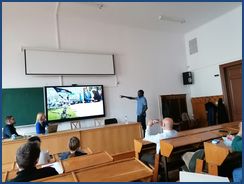 |
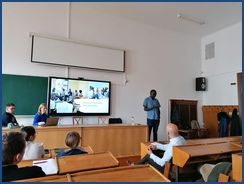 |


- an understanding of the knowledge learnt (paradigms, concepts, events, methods);
- an ability to generalize about possible applications of that learning;
- a spirit of inquiry that prompts them to ask important questions related to societal security and minority issues;
- the ability to update their learning.
The course was taught by a combination of interactive lectures, discussion, case studies, inductive discovery, deductive debate and group presentations. Class sessions involved both knowledge transfer and interactive discussions to reinforce understanding. Students are expected not to be more than passive listeners. The course was both in English and Romanian, in order to be open also for students coming with the Erasmus+ Mobility programme at Babeş-Bolyai University.
Between 2020 and 2023, we had different guests (politicians, policymakers, NGO representatives, experts, activists) attending the courses/seminars and sharing their knowledge on security and minority topics.
Course syllabus - European Security, National and Ethnic Minority Issues
The course aims to present the issue of national and ethnic minorities in the late XX century and beginning of the XXI century. The minorities’ issue is placed in the societal security sector (developed by the Copenhagen School) with ample reverberations on the political, economic, social, educational and cultural field. In the light of the new events in Europe, special attention, with case studies, will be paid to the refugee crisis in EU member states.
Courses and seminars held in 2020-2021
1. European Security, National and Ethnic Minority Issues (Faculty of History and Philosophy, BA degree, 4 ECTS) (See Course description, on-line: https://hiphi.ubbcluj.ro/Public/File/Fisa_disc_SSEN_2022/European_Security_National_Ethnic.pdf)
Majors: Security Studies (teaching language Romanian and English), International relations and European studies (teaching language Romanian), History, Erasmus + students;
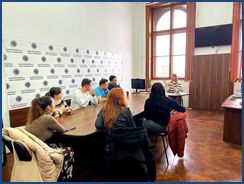

Courses and seminars to be held in 2021-2022
1. European Security, National and Ethnic Minority Issues (Faculty of History and Philosophy, BA degree, 4 ECTS)
Majors: Security Studies (teaching language Romanian and English), International relations and European studies (teaching language Romanian), History, Erasmus + students;
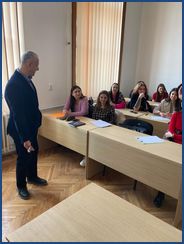
Courses and seminars to be held in 2022-2023
1. European Security, National and Ethnic Minority Issues (Faculty of History and Philosophy, BA degree, 4 ECTS)
Majors: Security Studies (teaching language Romanian and English), International relations and European studies (teaching language Romanian), History, Erasmus + students;.
| European Security, National and Ethnic Minority Issues
The course aims to present the issue of national and ethnic minorities in the late XX century and beginning of the XXI century. The minorities’ issue is placed in the societal security sector (developed by the Copenhagen School) with ample reverberations on the political, economic, social, educational and cultural field. During the semester, the students will be able to analyze the new security concepts, the national and ethnic minority’s issues in relation to public international law. The main objective of this course is the formation of specialists in European and security studies from a rather modern and interdisciplinary perspective, by combining various approaches from political science and the minority issue aspect.At the end of the semester, they will be able to understand and analyze the issues of national and ethnic minorities in conjunction with the European security environment. Professional Activity after graduating
|
Teaching activity 2
Summer course #WhereToEurope?” - ReThinking a multicultural Europe: From Theory to Practice
This course aims to develop the skills and competencies of our BA students in international relations, European studies and security studies. The course objective is to provide students with a working knowledge of European security, multiculturalism, refugees, ethnic and national minorities in Europe, in general and in the EU in particular.

Description
While getting knowledge about multiculturalism, students will also obtain practical experience which can help them to understand better some key points in the study of multiculturalism. Our commitment is grounded in an understanding that diversity is a key component of academic innovation: Having people from many backgrounds and experiences enriches the classroom and helps all of us develop wisdom, compassion, and leadership.
The unstoppable globalization, the subsequent increase in the rate of youth unemployment have played a decisive role in shaping the migration flows that are taking place all over Europe nowadays. On the other hand, this migration reality is contributing to the consolidation of the English language as a common language and to the rise of educational systems that promote bilingualism to better prepare its citizens in linguistic matters.

Methods of Instruction
The course was taught by a combination of interactive lectures, discussion, case studies, inductive discovery, deductive debate and group presentations. Appart from our colleagues, we had different guests (politicians, policymakers, NGO representatives, experts, activists) attending the course, giving lectures and sharing their knowledge on security and minority topics.
The summer school course is optional for:
- students (from all majors) from our Faculty (Bachlor, Masters, Doctoral and Postdoctoral),
- students who do not automatically meet security studies-minorities studies (in fields such as philology, public administration journalism, economics, advertising, business, math, letters, physics, biology, law, medicine and communication sciences)
- Foreign students (Erasmus+) are encouraged to take part in this course as well;
- students (Bachlor, Masters, Doctoral and Postdoctoral) from all the universities from Romania and the Republic of Moldova;
- students (Bachlor, Masters, Doctoral and Postdoctoral) from all the universities from other European countries.
- Professors, researchers, specialists with a special interest in security and minority issues.
Course held in 2021
1. #WhereToEurope?” - ReThinking a multicultural Europe: From Theory to Practice (Summer course, Faculty of History and Philosophy, Babeş-Bolyai University) Students: 38 participants
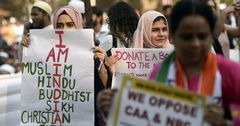
Course held in 2022
1. #WhereToEurope?” - ReThinking a multicultural Europe: From Theory to Practice (Summer course, Faculty of History and Philosophy, Babeş-Bolyai University) Students: 39 participants
Course held in 2023
1. #WhereToEurope?” - ReThinking a multicultural Europe: From Theory to Practice (Summer course, Faculty of History and Philosophy, Babeş-Bolyai University) Students: 35 participants
